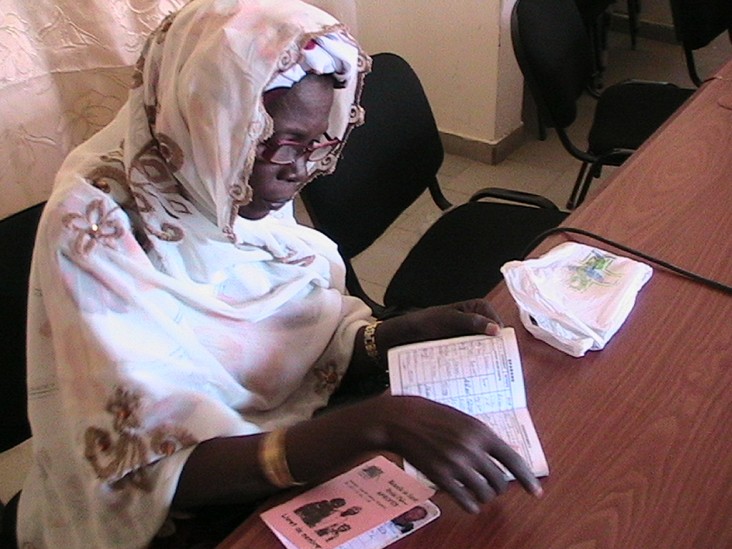
At less than 1 percent, Senegal has lower HIV infection rates than other sub-Saharan African countries. However, for Senegalese infected with the disease, the challenges are just as severe as anywhere else on the continent. Discrimination isolates HIV-infected individuals from their communities, and the high cost of medication burdens their families.
Since 2001, Senegal has offered free antiretroviral (ARV) therapy to HIV-positive patients. Yet many patients interrupt or stop treatment due to the cost of treating related infections and the frequency of check-ups needed to monitor their progress.
USAID has launched an innovative pilot project to encourage HIV-positive patients to continue ARV treatment. The project not only increases access to health insurance and care, but also promotes financial sustainability by offering business loans to vulnerable individuals. This is achieved through a locally-managed fund that serves as a guarantee for the loans and compensates the insurance groups for extraordinary costs associated with HIV care.
Moussa, 40, said his family was virtually paralyzed by the stigma of his son's HIV diagnosis, as well as the medical expenses that his treatment required. “My son and I had many difficulties in our relationship. He did not fit in with his friends. We argued a lot because I didn’t have the means to meet the obligations I still felt towards him.” With his microloan, Moussa was able to purchase 400 pounds of peanuts, which he worked to transform into 40 liters of peanut oil for sale at the local market. He invested in chickens to breed and began selling eggs. Moussa says, “Now, we work together as a family in business.”
Anta, 50, used her loan to buy millet and maize for resale, but said she made sure not to spend too much at once. “I kept a reserve for the first monthly payment and I started to work,” Anta said. “Because of all the effort they made to make the money available, I felt I had to be faithful to the fixed dates of the repayment schedule. Now, I can honor my contributions, can live better and afford the treatments I need. I can even pay school fees for my children for college.”
During its first six months in Kaolack, Senegal, the program reached 83 women. Of that total, 47 joined health insurance groups known as mutuelles, which in turn benefited 337 family members. The mutuelles covered half of the $860 it cost for health services, the USAID fund covered one quarter and beneficiaries covered the final quarter.
Of the 33 beneficiaries who accessed more than $17,000 in microcredit, 98 percent kept their payment schedule. The program also engaged the local association of people living with HIV/AIDS to design appropriate services and inform peers about this opportunity. Most importantly, virtually all of the patients in the pilot project faithfully continued their ARV treatment.
The success of the pilot provides an example to the nation of how to finance HIV/AIDS care sustainably through targeted subsidies and local institutions. Mission Director Henderson Patrick explains, "This project showed that when health costs are manageable, people living with HIV/AIDS can meet their credit obligations as well as the health needs. By working with local health insurance and microcredit services, USAID also strengthened the institutions that will continue to serve the community in the future.
This project is part of USAID’s larger efforts to reduce the effect of HIV in Senegal by providing information to tens of thousands of people in high-risk groups about HIV prevention, condom distribution and HIV testing.







Comment
Make a general inquiry or suggest an improvement.